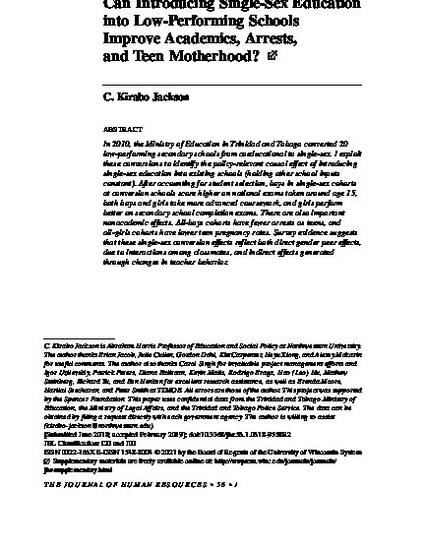
Article
Can Introducing Single-Sex Education into Low-Performing Schools Improve Academics, Arrests, and Teen Motherhood?
Journal of Human Resources
(2021)
Abstract
In 2010, the Ministry of Education in Trinidad and Tobago converted 20 low-performing secondary schools from coeducational to single-sex. I exploit these conversions to identify the policy-relevant causal effect of introducing single-sex education into existing schools (holding other school inputs constant). After accounting for student selection, boys in single-sex cohorts at conversion schools score higher on national exams taken around age 15, both boys and girls take more advanced coursework, and girls perform better on secondary-school completion exams. There are also important non-academic effects; all-boys cohorts have fewer arrests as teens, and all-girls cohorts have lower teen pregnancy rates. Survey evidence suggests that these single-sex conversion effects reflect both direct gender peer effects due to interactions between classmates, and indirect effects generated through changes in teacher behavior.
Keywords
- single-sex education,
- gender peer effects,
- education,
- crime,
- gender differences,
- tracking
Disciplines
Publication Date
Winter 2021
Citation Information
C. Kirabo Jackson. "Can Introducing Single-Sex Education into Low-Performing Schools Improve Academics, Arrests, and Teen Motherhood?" Journal of Human Resources (2021) Available at: http://works.bepress.com/c_kirabo_jackson/29/
